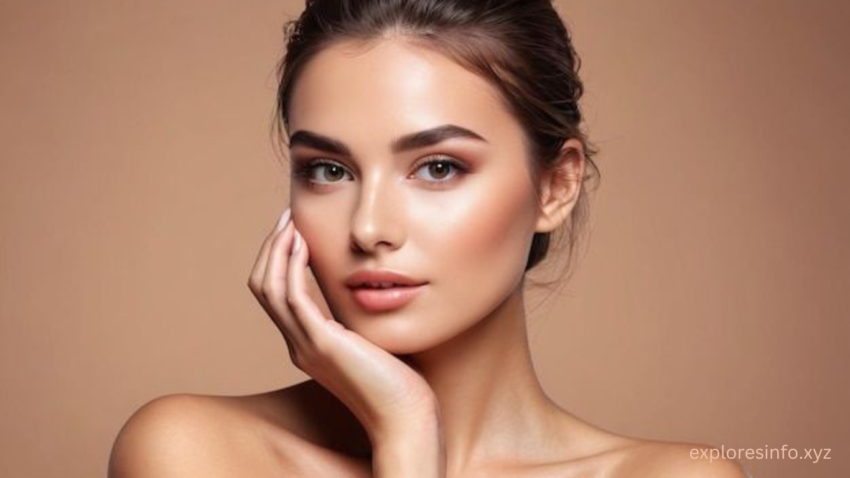Aging is a natural part of life, but news is that science has uncovered numerous strategies to slow down the aging process and help you look and feel younger. In this article, we’ll explore evidence-based, practical tips who doesn’t want to age gracefully and maintain their vitality for as long as possible? The good to help you turn back the clock—or at least slow it down. From skincare to lifestyle changes, let’s dive into the science-backed secrets of anti-aging.
1. Understand the Science of Aging
Before we jump into strategies, it’s important to understand why we age. Aging is a critical process influenced by genetics, environment, and lifestyle. At the cellular level, aging is driven by factors like:
- Oxidative Stress: Free radicals damage cells, leading to wrinkles, fatigue, and diseases.
- Telomere Shortening: Telomeres (the protective caps on chromosomes) shorten as we age, causing cells to deteriorate.
- Inflammation: Chronic inflammation accelerates aging and contributes to conditions like arthritis and heart disease.
- Hormonal Changes: Declining hormones like estrogen, testosterone, and growth hormone affect energy, muscle mass, and skin elasticity.
By targeting these processes, we can slow down aging and improve our quality of life.
2. Nourish Your Body with Anti-Aging Foods
What you drink and eat plays a huge role in how you age. Here are some science-backed foods to include in your diet:
- Antioxidant-Rich Foods: Berries, dark chocolate, spinach, and nuts combat oxidative stress and protect your cells.
- Omega-3 Fatty Acids: Found in fatty fish like salmon, walnuts, and flaxseeds, omega-3s reduce inflammation and support brain health.
- Colorful Vegetables: Carrots, sweet potatoes, and bell peppers are packed with beta-carotene and vitamins that promote skin health.
- Green Tea: Loaded with polyphenols, green tea fights free radicals and supports metabolism.
- Probiotics: Yogurt, kefir, and fermented foods like kimchi improve gut health, which is linked to better immunity and skin.
A balanced diet rich in whole foods can work wonders for your energy, skin, and overall health.
3. Stay Hydrated
Water is important for maintaining youthful skin and overall health. Dehydration can lead to dry skin, fatigue, and even cognitive decline. Aim to drink at least 8 glasses of water a day, and consider adding hydrating foods like cucumbers, watermelon, and oranges to your diet.
4. Protect Your Skin from the Sun
Sun exposure is one of the biggest culprits behind premature aging. UV rays damage collagen and elastin, leading to wrinkles, dark spots, and sagging skin. To protect your skin:
- Use a broad-spectrum sunscreen with SPF 30 or higher every day, even on cloudy days.
- Wear protective clothing, hats, and sunglasses.
- Avoid peak sun hours (10 a.m. to 4 p.m.).
5. Exercise Regularly
Exercise isn’t just for weight management—it’s a powerful anti-aging tool. Here’s how it helps:
- Boosts Circulation: Improved blood flow delivers oxygen and nutrients to your skin, giving you a healthy glow.
- Builds Muscle: Strength training preserves muscle mass, which naturally declines with age.
- Reduces Inflammation: Regular exercise lowers chronic inflammation and supports heart health.
- Improves Mood: Physical activity releases endorphins, reducing stress and promoting mental well-being.
Aim for a mix of cardio, strength training, and flexibility exercises like yoga or Pilates.
6. Prioritize Sleep
Sleep is when your body repairs and regenerates. Poor sleep accelerates aging by increasing stress hormones, impairing cognitive function, and weakening the immune system. To improve your sleep:
- Stick to a consistent sleep schedule.
- Create a relaxing bedtime routine (e.g., reading, meditation).
- Avoid screens and caffeine before bed.
- Aim for 7-9 hours of quality sleep each night.
7. Manage Stress
Chronic stress speeds up aging by increasing cortisol levels, which can damage cells and lead to inflammation. To manage stress:
- Practice mindfulness or meditation.
- Engage in hobbies you enjoy.
- Spend time in nature.
- Connect with loved ones.
8. Skincare That Works
A good skincare routine can make a big difference in how your skin ages. Look for products with these ingredients:
- Retinoids: Boost collagen production and reduce wrinkles.
- Vitamin C: Brightens skin and fights free radicals.
- Hyaluronic Acid: Hydrates and plumps the skin.
- Peptides: Stimulate collagen and improve elasticity.
Don’t forget to cleanse, moisturize, and exfoliate regularly to keep your skin healthy and glowing.
9. Consider Intermittent Fasting
Intermittent fasting (IF) is a popular anti-aging strategy that involves cycling between periods of eating and fasting. Studies suggest that IF can:
- Improve cellular repair.
- Reduce inflammation.
- Support weight management.
- Enhance brain function.
Start with a simple 16:8 fasting schedule (16 hours of fasting, 8 hours of eating) and see how your body responds.

10. Stay Socially Active
Loneliness and social isolation can accelerate aging and increase the risk of chronic diseases. Staying connected with friends, family, and community can boost your mental and emotional well-being, helping you feel younger and more vibrant.
11. Limit Sugar and Processed Foods
Sugar and processed foods contribute to inflammation, weight gain, and skin aging. High sugar intake can lead to glycation, a process where sugar molecules attach to proteins like collagen, making them stiff and brittle.
12. Supplement Wisely
While a balanced diet should provide most of the nutrients you need, some supplements can support anti-aging efforts:
- Collagen: Supports skin elasticity and joint health.
- Vitamin D: Boosts immunity and bone health.
- CoQ10: Protects cells from oxidative damage.
- Resveratrol: Found in red wine, it has anti-inflammatory and antioxidant properties.
13. Embrace a Positive Mindset
Your mindset plays a significant role in how you age. Studies show that people with a positive outlook on life tend to live longer and healthier lives. Practice gratitude, focus on the present moment, and surround yourself with positivity.
14. Avoid Smoking and Limit Alcohol
Smoking accelerates aging by damaging collagen and elastin, leading to wrinkles and dull skin. Excessive alcohol consumption dehydrates the skin and causes inflammation. Quitting smoking and moderating alcohol intake can have a profound impact on your appearance and health.
15. Regular Health Checkups
Prevention is key when it comes to aging. Regular health checkups can help detect and address potential issues early. Monitor your blood pressure, cholesterol, and blood sugar levels, and stay up-to-date with vaccinations and screenings.
16. Explore Advanced Anti-Aging Treatments
If you’re looking for more advanced options, consider treatments like:
- Laser Therapy: Stimulates collagen production and reduces wrinkles.
- Microneedling: Improves skin texture and elasticity.
- Botox or Fillers: Temporarily reduces wrinkles and restores volume.
- PRP Therapy: Uses your own blood to promote skin rejuvenation.
Always consult a qualified professional before undergoing any treatments.
17. Stay Curious and Keep Learning
Keeping your brain active is just as important as taking care of your body. Engage in activities that challenge your mind, such as reading, puzzles, or learning a new skill. A sharp mind is a key component of a youthful life.
18. Practice Gratitude and Mindfulness
Gratitude and mindfulness have been shown to reduce stress, improve mental health, and even boost physical health. Take a few minutes each day to reflect on what you’re grateful for and practice mindfulness through meditation or deep breathing exercises.
19. Laugh Often
Laughter truly is the best medicine. It reduces stress, boosts immunity, and releases endorphins. Surround yourself with people who make you laugh, watch a funny movie, or simply find joy in the little things.
20. Be Consistent
The key to successful anti-aging is consistency. Small, daily habits add up over time, leading to significant improvements in how you look and feel. Start with one or two strategies and gradually incorporate more into your routine.
Conclusion: Aging is Inevitable, But How You Age is Up to You
Aging is a natural process, but with the right strategies, you can slow it down and enjoy a vibrant, healthy life for years to come. By nourishing your body, protecting your skin, staying active, and maintaining a positive mindset, you can unlock the secrets to aging gracefully. Remember, it’s never too early or too late to start taking care of yourself. Embrace these science-backed tips and celebrate the journey of aging with confidence and vitality.
By following these strategies, you’ll not only look younger but also feel more energetic, focused, and joyful. Aging doesn’t have to be a daunting process—it can be an opportunity to thrive and live your best life.

FEQs
1. What does “science-backed” mean in anti-aging?
“Science-backed” means that the strategies and tips shared in the article are supported by research and studies. These aren’t just random ideas—they’re proven methods that have been tested and shown to help slow down aging or improve health.
2. Can I really slow down aging?
Yes, to some extent! While we can’t stop aging completely, science shows that certain habits—like eating healthy, exercising, and protecting your skin—can help you age more slowly and feel younger for longer.
3. What are the easiest anti-aging tips to start with?
Start with simple changes like:
- Drinking more water.
- Eating more fruits and vegetables.
- Wearing sunscreen daily.
- Getting enough sleep.
These small steps can make a big difference over time.
4. Do I need expensive creams or treatments to look younger?
Not necessarily! While some skincare products and treatments can help, many anti-aging strategies are free or low-cost, like staying hydrated, eating well, and managing stress. It’s more about consistency than spending a lot of money.
5. How does stress affect aging?
Stress releases hormones like cortisol, which can damage your cells and lead to wrinkles, fatigue, and even health problems. Managing stress through relaxation techniques, exercise, or hobbies can help you look and feel younger.
6. What foods are best for anti-aging?
Foods rich in antioxidants, healthy fats, and vitamins are great for anti-aging. Some examples include:
- Berries (like blueberries and strawberries).
- Fatty fish (like salmon).
- Nuts and seeds.
- Leafy greens (like spinach and kale).
- Green tea.
7. How much exercise do I need to stay youthful?
Aim for at least 30 minutes of moderate exercise most days of the week. This can include walking, yoga, strength training, or any activity you enjoy. Exercise boosts circulation, builds muscle, and reduces inflammation—all of which help you stay youthful.
8. Can sleep really affect how I age?
Absolutely! Sleep is when your body repairs itself. Poor sleep can lead to dark circles, wrinkles, and even health issues. Aim for 7-9 hours of quality sleep each night to support your body’s natural repair processes.
9. What’s the deal with sunscreen? Do I need it every day?
Yes! Sunscreen protects your skin from harmful UV rays, which are one of the biggest causes of wrinkles, dark spots, and sagging skin. Use a broad-spectrum SPF 30 or higher every day, even when it’s cloudy.
10. Are supplements necessary for anti-aging?
Not always. If you eat a balanced diet, you may not need supplements. However, some people benefit from supplements like collagen, vitamin D, or omega-3s. Talk to your doctor before starting any new supplements.
11. What’s the best way to take care of my skin as I age?
A simple skincare routine can work wonders:
- Cleanse your face daily.
- Use a moisturizer to keep your skin hydrated.
- Apply sunscreen every morning.
- Consider using products with retinoids or vitamin C for extra anti-aging benefits.
12. Can social connections really help me age better?
Yes! Studies show that staying socially active can improve your mental and emotional health, which in turn helps you feel younger and more vibrant. Spend time with friends, family, or join community activities.
13. Is it too late to start anti-aging habits if I’m already older?
It’s never too late! Your body can still benefit from healthy habits, no matter your age. Start with small changes and build from there—your future self will thank you.
14. What’s the most important anti-aging tip?
Consistency is key! Whether it’s eating well, exercising, or protecting your skin, small daily habits add up over time. Focus on making sustainable changes that you can stick to long-term.
15. Can laughter really help me stay young?
Yes! Boosts your mood, and even strengthens your immune system. So, watch a funny movie, spend time with people who make you laugh, and don’t take life too seriously.
16. What if I don’t see results right away?
Anti-aging is a long-term process. Be patient and focus on how you feel—not just how you look. Over time, you’ll notice improvements in your energy, skin, and overall well-being.
17. Can I combine multiple anti-aging strategies?
Absolutely! In fact, combining strategies—like eating well, exercising, and managing stress—can have a bigger impact than focusing on just one. Think of it as a holistic approach to staying youthful.
18. Are there any risks to anti-aging treatments like Botox or fillers?
While treatments like Botox and fillers can be effective, they do come with potential risks, such as allergic reactions or uneven results. Always consult a qualified professional and do your research before undergoing any treatments.
19. How can I stay motivated to follow these tips?
Set small, achievable goals and celebrate your progress. Remember, anti-aging isn’t about perfection—it’s about making better choices most of the time. Find a buddy to join you on the journey, or track your progress in a journal to stay motivated.
Final Thought
Aging is a natural part of life, but with the right strategies, you can age gracefully and feel your best at every stage. Start with one or two tips from the article and build from there. Remember, it’s not about looking 20 forever—it’s about living a healthy, happy, and vibrant life!
